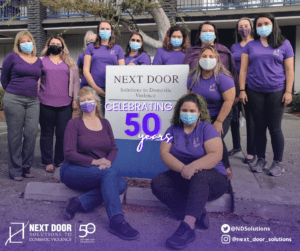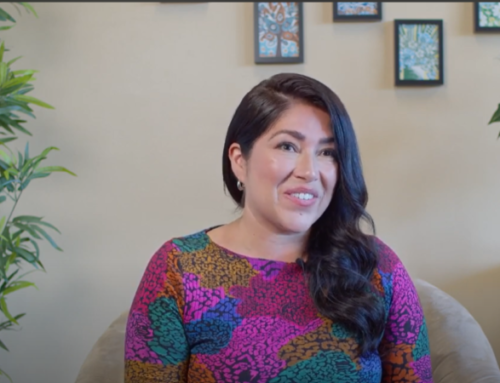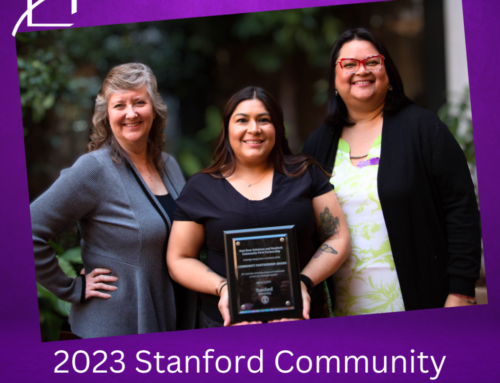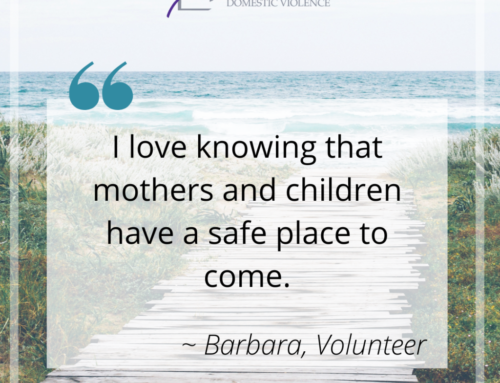
Celebrating 50 Years of Next Door Solutions
Pretty much everyone is familiar with stories of how many successful companies in Silicon Valley were launched from humble beginnings in someone’s garage. People know those stories and how one person’s idea was able to sprout and become a legacy.
One such story worth knowing yet not given the exposure that the giants of the tech industry have received is the story of Bea Robinson Mendez and her garage.
In 1971, San Jose, California was a small city of less than half a million people within a county that was rapidly changing from being agriculturally based to one of manufacturing, professional services, technological innovations, and grassroots organizations seeking to improve community conditions. And at this time, a woman victimized by domestic violence had little in the way of legal support, community advocacy, or a safe place to go.
Bea, a survivor herself, recognized the lack of services to address the safety and unique needs of victims of domestic violence and their children. She rallied a group of friends, Latinas, and established a hotline number out of her garage, with each of the group members taking turns fielding the calls and providing information and support. Despite lacking experience and training, a budget and funding strategy, or outreach collateral, they persisted, because they had the greatest assets needed: a vision and the willingness to do whatever it took to change the status quo and create options for those fleeing abuse where none had existed.
It wasn’t long before the phone was ringing daily, and the group moved to establish a haven for safety. They recruited additional volunteers who would open their homes, including their garage, as temporary shelter to women fleeing abuse. And as word spread, more and more women came seeking assistance. It also caught the attention of community leaders who felt compelled to support this work.
Three years later, in 1974, Bea and her colleagues formally established their work as The Woman’s Alliance (WOMA). And with public support, WOMA, in 1977, established its first official domestic violence shelter, Casa WOMA, making it the second domestic violence shelter in the state and the first in the nation to provide bilingual services.
Under Bea’s leadership, WOMA increased services to include legal advocacy and no-cost attorneys, support groups, children’s aligned services, and self-sufficiency case management; all at no cost to the survivor. And they established collaborative partnerships with local law enforcement in order to better assist survivors in reaching support services.
Bea stepped down as executive director in 1989, and WOMA changed its name to Next Door, and later became Next Door Solutions to Domestic Violence in 2008. Today, thousands of survivors across the gender, racial, and cultural spectrum receive services that specifically address the unique needs of survivors.
Next Door Solutions remains rooted in our community and continues to hold true to the values and vision of its founder – to have the willingness to do whatever it takes to end domestic violence in the moment and for all times – for the individual, for the family, and for our community.









